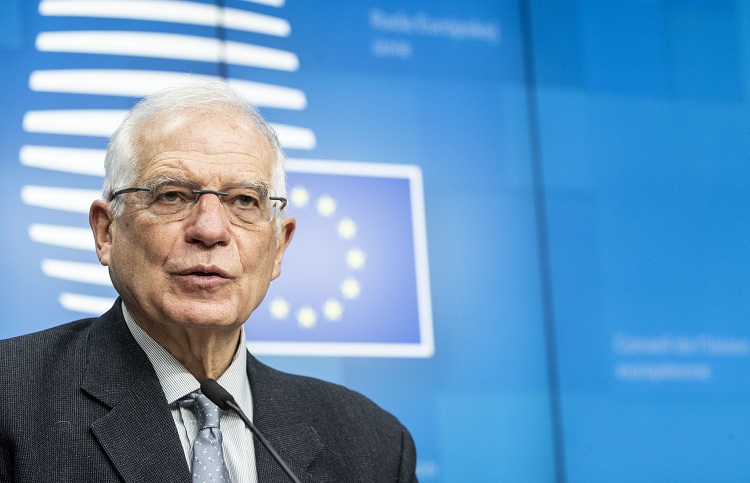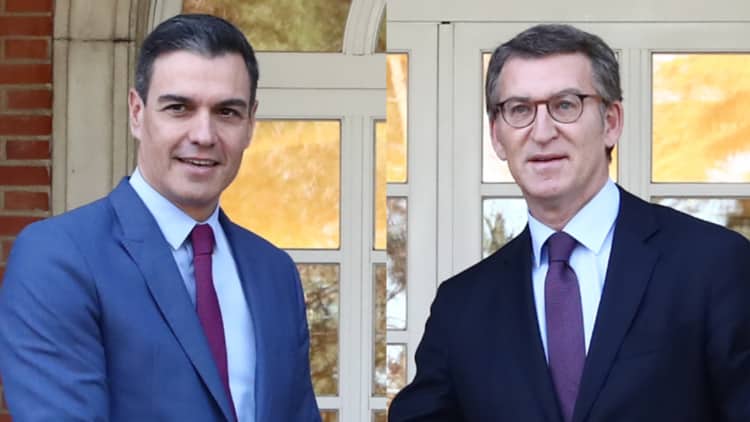The Diplomat
The Spanish government will join the European Defence Agency’s (EDA) joint ammunition procurement project for Ukraine. Yesterday, EU countries agreed to invest two billion euros to deliver artillery ammunition to Volodymyr Zelensky’s government over a 12-month period.
The EU’s High Representative for Foreign Policy, Josep Borrell, announced, via Twitter, the agreement adopted in Brussels jointly by the foreign and defence ministers, which he described as a “historic decision” and which includes the delivery of one million rounds of artillery ammunition to Ukraine over the next twelve months.
Borrell’s own ‘three-track’ plan, based on an initial Estonian idea, involves countries delivering as much 155-calibre ammunition as they can to Kiev as soon as possible, on the assumption that it will be quickly replenished with new joint orders from industry.
The EU will fund one billion euros for immediate delivery and another one billion euros for joint procurement.
“Ukrainian soldiers are showing great courage and tenacity. But they need ammunition,” European Commission President Ursula von der Leyen said on the same social media, welcoming the EU-27’s political agreement.
She added that the Commission will work with member states “to increase defence industrial production in the EU to meet this goal”.
The plan endorsed today has three tracks, the first of which is to deliver to Ukraine as soon as possible stocks of ammunition, mainly 155 millimetres, which EU countries already have or have already ordered from industry. This ammunition can be of either Western or Soviet type.
One billion from the European Peace Facility (ESF) will be used for this purpose.
The EFSF is a programme that, outside the EU budget and made up of contributions from member states, is being used to finance arms deliveries to Kiev.
The one billion from the fund will allow countries to reimburse 50-60% of the cost of the ammunition they deliver to Ukraine on an accelerated basis.
To ensure that Ukraine can continue to be supported and to guarantee EU countries that their stockpiles will be replenished, the second track of the plan includes the European Defence Agency making joint purchases of ammunition or at least three member states teaming up to make such purchases.
For this second track, an additional one billion euros will be used from the EAPF, which would only be used for reimbursements of ammunition sent to Ukraine and not for ammunition remaining in the stockpiles of member states.
Moreover, in order to be reimbursed for the money spent on joint procurement, these ammunition purchases must be made by European and Norwegian companies.
Eighteen countries have already joined the EDA project on joint procurement: Austria, Belgium, Croatia, Cyprus, Czech Republic, Estonia, Finland, France, Germany, Greece, Luxembourg, Malta, the Netherlands, Portugal, Romania, Slovakia, Sweden and Norway.
Spain is not yet among those who have joined the project, but the Minister of Foreign Affairs, José Manuel Albares, assured that it will do so, and that if it has not yet done so it is due to “an administrative formality”, because Defence needs to process a series of authorisations in order to form part of the EDA plan.
The minister added that, in any case, the decision is a matter of “little time”, since it does not have to go through the Council of Ministers.
Before the start of the meeting, Albares had already expressed his support for the European joint ammunition procurement plan, pointing out that the initiative should prioritise material manufactured by the European arms industry.







